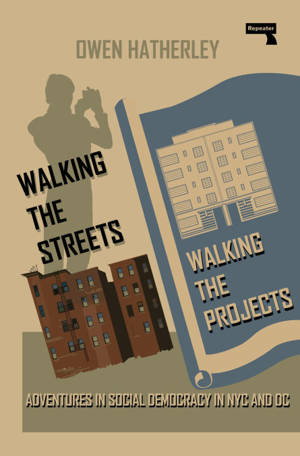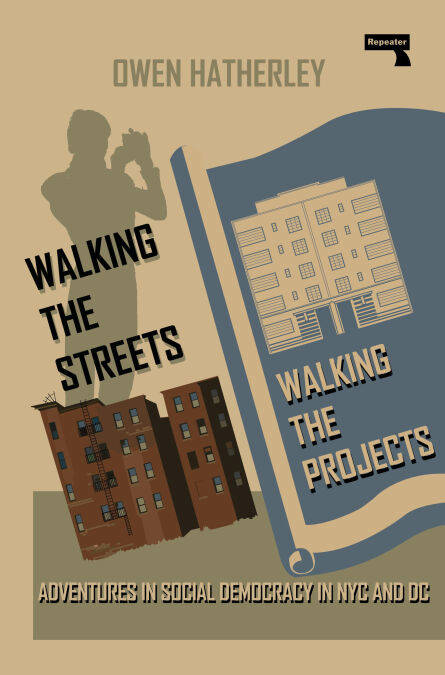
Bedankt voor het vertrouwen het afgelopen jaar! Om jou te bedanken bieden we GRATIS verzending (in België) aan op alles gedurende de hele maand januari.
- Afhalen na 1 uur in een winkel met voorraad
- In januari gratis thuislevering in België
- Ruim aanbod met 7 miljoen producten
Bedankt voor het vertrouwen het afgelopen jaar! Om jou te bedanken bieden we GRATIS verzending (in België) aan op alles gedurende de hele maand januari.
- Afhalen na 1 uur in een winkel met voorraad
- In januari gratis thuislevering in België
- Ruim aanbod met 7 miljoen producten
Zoeken
Walking the Streets/Walking the Projects E-BOOK
Adventures in Social Democracy in NYC and DC
Owen Hatherley
E-book | Engels
€ 8,86
+ 8 punten
Uitvoering
Omschrijving
A walk through the remnants of a social democratic America, and an argument about its future.
Walking the Streets/Walking the Projects is an insightful exploration of the remnants of a social democratic America and a thought-provoking argument about its future.
The book traces the rise of a 1960s urban ideology that celebrated bottom-up, organic city development while criticising state-led planning that resulted in lifeless, sterile "projects." Using walking as a method, the author tests these ideas across New York City, with a brief interlude in Washington, DC, examining a wide array of urban developments.
Key areas explored:
- Cultural complexes in Manhattan
- New Deal-era public housing in Brooklyn, Harlem, and Queens
- Roosevelt Island’s social experiment
- Communist housing co-operatives in the Bronx
- Union-led rebuilding of the Lower East Side
- DC's Metro system
By walking through these spaces, the book reveals that, despite their flaws, fragments of a more equal society were built in the past and continue to thrive today. Walking the Streets/Walking the Projects asks what lessons a new generation of American socialists might learn from these surviving social democratic enclaves as they envision a better future.
Walking the Streets/Walking the Projects is an insightful exploration of the remnants of a social democratic America and a thought-provoking argument about its future.
The book traces the rise of a 1960s urban ideology that celebrated bottom-up, organic city development while criticising state-led planning that resulted in lifeless, sterile "projects." Using walking as a method, the author tests these ideas across New York City, with a brief interlude in Washington, DC, examining a wide array of urban developments.
Key areas explored:
- Cultural complexes in Manhattan
- New Deal-era public housing in Brooklyn, Harlem, and Queens
- Roosevelt Island’s social experiment
- Communist housing co-operatives in the Bronx
- Union-led rebuilding of the Lower East Side
- DC's Metro system
By walking through these spaces, the book reveals that, despite their flaws, fragments of a more equal society were built in the past and continue to thrive today. Walking the Streets/Walking the Projects asks what lessons a new generation of American socialists might learn from these surviving social democratic enclaves as they envision a better future.
Specificaties
Betrokkenen
- Auteur(s):
- Uitgeverij:
Inhoud
- Aantal bladzijden:
- 280
- Taal:
- Engels
Eigenschappen
- Productcode (EAN):
- 9781915672452
- Verschijningsdatum:
- 10/06/2024
- Uitvoering:
- E-book
- Beveiligd met:
- Adobe DRM
- Formaat:
- ePub

Alleen bij Standaard Boekhandel
+ 8 punten op je klantenkaart van Standaard Boekhandel
Beoordelingen
We publiceren alleen reviews die voldoen aan de voorwaarden voor reviews. Bekijk onze voorwaarden voor reviews.









